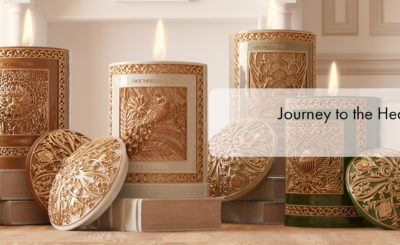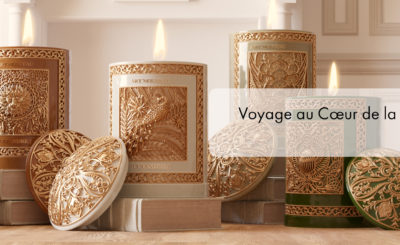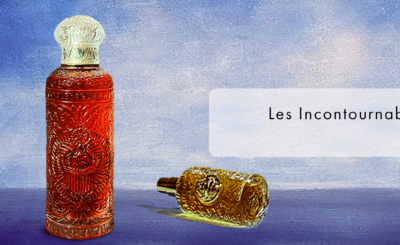Among the most debated topics of niche perfumery is the age-old question: ‘Are natural fragrances better than synthetic?’. People have the tendency to spontaneously prefer natural vs the counterpart; after all, is there anything better than actual byproducts of mother nature?
While it can certainly be true for other sectors like food, the truth is that when it comes to perfumery there is no competition between natural and synthetic notes simply because they individually occupy complimentary roles and create balance in the composition of a good perfume. To further understand the “whys” of this topic, we must understand the differences that lie between the two and why they’re good together.
THE NATURAL NOTES
As the name implies, natural notes in perfumes are odorous substances that are extracted from nature such as leaves, flowers, trees, and even until several years ago – from animals. Floral, woody, and citrus notes are the most common olfactory families in this group. Perfumes that contain a consistent percentage of high-quality natural notes authentically convey the scent that comes along with it. Strong, rich, and graceful; natural notes give way to each other and create a lasting balance. However, many natural notes have been banned over the years because they were extracted from animals. One of which for example, is Ambergris, an extract from the secretions of the Sperm Whale.
THE SYNTHETIC SCENTS
Synthetic notes came up in the early 1900s, allowing perfumers to replicate nature scents that are unextractable (imagine the smell of the sea and you get the idea). Moreover, need for synthetic raw materials continues to grow with the rise of eco-sustainability and respect for natural ecosystems. Synthetics are a fitting alternative to recreate smells that is prohibited from being extracted naturally. Comparatively, synthetic notes are created in the laboratory. They are designed in safe environments and are carefully tested by internationally recognized bodies. Synthetic notes are divided into several types and some of the best ones allow the notes to stick to the skin for longer. On the other hand, some have the ability to soften the intensity of a raw material and has the ability to harmonize with natural counterparts to enhance the personality of the fragrance.
IT’S ALL ABOUT BALANCE
In our opinion, there’s no opposition between natural and synthetic raw materials in perfume. It is in their fusion that gives birth to perfume masterpieces. Imagine a world without iconic fragrances such as Chanel No. 5 which would never have come to life without its synthetic aldehyde notes!
According to Emna Doghri of Floralys, ‘A natural perfume without synthetic raw materials may not have as much character or wow effect. Synthetic does not mean cheap. In fact, synthetic raw materials can sometimes be more expensive such as musk.’ (musk is her favorite synthetic note for its incredible influence in a perfume’s trail). She also points out that good quality synthetics set the trail of the fragrance, while some notes are better off natural in all respects such as jasmine, ylang-ylang, and rose.
Meanwhile, Flair’s Amelie Bourgeois, natural and synthetic are two very different things. ‘For natural, the materials are a lot in motion. It is an assembly of 300-400 scent molecules that move and are alive. For the synthetic, the notes are stagnant but technical. They bring roundness, dynamism and texture which is modern.’ She believes we simply can’t do without synthetic molecules because every great perfume exists thanks to them! Just take Ambroxan in Bois d’Argent by Dior or Vanillin in Shalimar as an example. When asked about her favorite synthetic, she says, “Ambroxan because it is sensual, round and erotic. It’s abstract; it doesn’t smell at first but it is bewitching.’ Just like Majestic Jardin, one of her creations that has Ambroxan.
Perfumery has always been in constant evolution. From history’s essential oils extracted from flowers, plants, and woods to the laboratory-born molecules that we have today, the progress cannot be ignored. The selection of natural and synthetic notes is part of a creative process to enhance and give life to perfumes. Each element makes up the perfect balance that is necessary to a successful perfume creation. The world of perfumery is a hybrid universe – both nature and science coming together to arouse emotions that only fragrances can awaken.
Do you agree? Let us know what you think!






